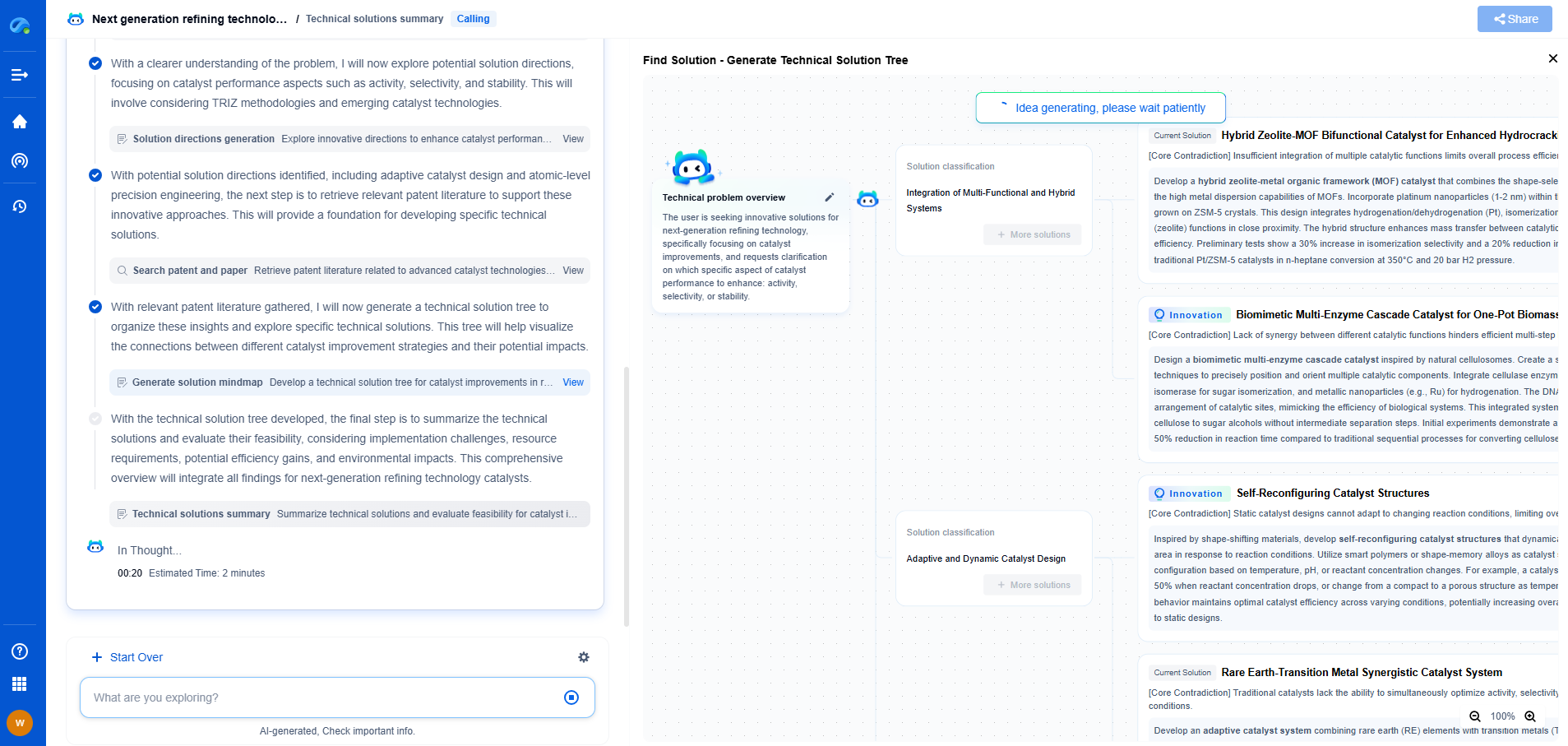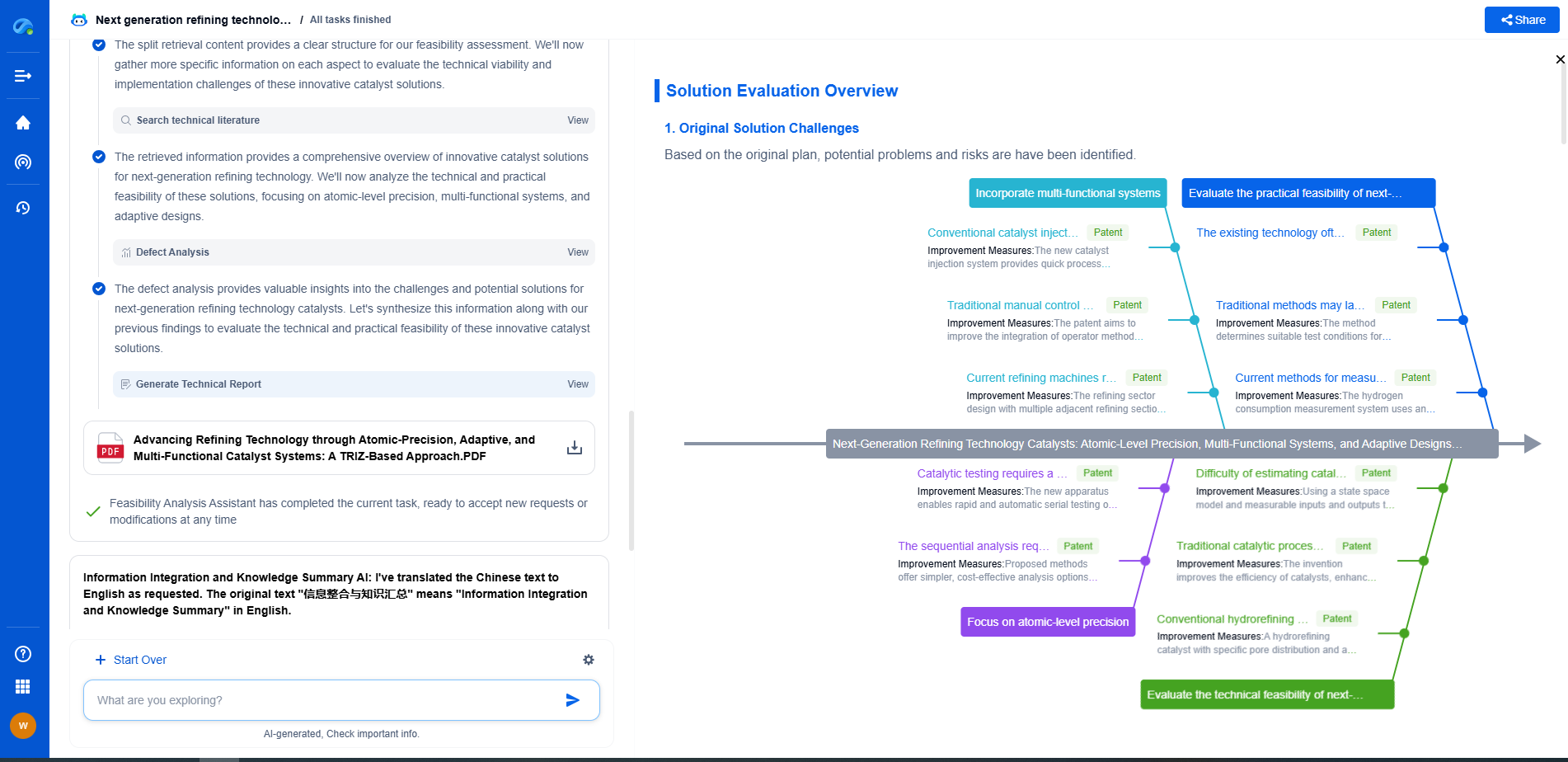AC-Coupled Systems in Retrofits: When and Why They Make Sense
JUL 22, 2025 |
In recent years, the interest in renewable energy systems has grown significantly, with more homeowners and businesses considering solar energy installations. For those looking to upgrade or expand their existing solar setups, retrofitting becomes an appealing option. An AC-coupled system is a specific type of solar energy setup that is gaining traction in retrofit applications. But what exactly is an AC-coupled system, and why might it be the best choice for certain situations?
AC-coupled systems involve the integration of energy storage (like batteries) into an existing grid-tied photovoltaic (PV) system. Unlike DC-coupled systems, which connect the solar panels directly to the batteries before converting to AC, AC-coupled systems first feed the solar-generated electricity into an inverter, converting it into AC power. This power can then be used by household appliances or stored in batteries through a secondary inverter system.
The Advantages of AC-Coupled Systems in Retrofits
Flexibility and Scalability
One of the primary benefits of AC-coupled systems in retrofits is their flexibility. These systems can easily integrate with existing grid-tied solar systems without requiring significant changes to the existing infrastructure. This flexibility makes them particularly suited for homeowners who want to add battery storage to an already installed solar array without having to overhaul the entire system.
Scalability is another advantage. Homeowners can start with a modest battery backup system and expand it as their budget or energy needs increase. This capability allows for a phased approach to upgrading, making the financial commitment more manageable.
Improved Efficiency and Reliability
AC-coupled systems can offer improved efficiency and reliability, particularly in retrofit applications. By using a separate inverter for the battery storage system, there is often less energy loss compared to a DC-coupled system where energy must be converted multiple times. Furthermore, the ability to store energy for use during power outages or peak demand times enhances the reliability of the overall energy system.
Enhanced Energy Independence
In areas prone to grid instability or outages, having an AC-coupled system with battery backup can provide peace of mind. These systems allow for greater energy independence by enabling homeowners to store solar energy and use it when the grid is down or during periods of high electricity rates. This capability is particularly beneficial in areas with time-of-use rates where electricity prices can spike during peak hours.
When AC-Coupled Systems Make Sense
Retrofitting Existing Solar Systems
If you already have a grid-tied solar system and are looking to add battery storage, an AC-coupled system is often the most straightforward and cost-effective option. It allows you to leverage your existing investment in solar panels and inverters while enhancing your energy storage capabilities. This approach eliminates the need to replace or significantly alter existing components, which can be both costly and time-consuming.
Locations with Stable Grid Infrastructure
For locations where the grid infrastructure is stable but where the goal is to enhance energy security and independence, AC-coupled systems are a practical choice. They allow users to maximize the use of solar-generated electricity without being heavily reliant on the grid, while still taking advantage of net-metering programs when available.
Budget-Friendly Solutions
For those on a budget, the ability to incrementally invest in an AC-coupled system can be particularly appealing. Homeowners can initially install a smaller system tailored to their immediate needs and later expand the system as resources allow. This phased approach helps to manage upfront costs while still moving towards greater energy self-sufficiency.
Conclusion
AC-coupled systems present a compelling option for homeowners and businesses looking to retrofit their existing solar installations with energy storage capabilities. With their flexibility, scalability, and potential for improved energy efficiency, these systems offer numerous advantages, particularly in retrofit scenarios. As solar technology continues to evolve, AC-coupled systems will likely play an increasingly important role in achieving energy independence and sustainability.
As solar technology races ahead—from perovskite cells to tandem architectures, from anti-reflective coatings to transparent electrodes—staying on top of fast-moving innovation has become a strategic imperative.
Patsnap Eureka, our intelligent AI assistant built for R&D professionals in high-tech sectors, empowers you with real-time expert-level analysis, technology roadmap exploration, and strategic mapping of core patents—all within a seamless, user-friendly interface.
⚡ Ready to accelerate your solar innovation journey? Try Patsnap Eureka today and let AI help you harness the full power of the sun—and your IP strategy.
- R&D
- Intellectual Property
- Life Sciences
- Materials
- Tech Scout
- Unparalleled Data Quality
- Higher Quality Content
- 60% Fewer Hallucinations
Browse by: Latest US Patents, China's latest patents, Technical Efficacy Thesaurus, Application Domain, Technology Topic, Popular Technical Reports.
© 2025 PatSnap. All rights reserved.Legal|Privacy policy|Modern Slavery Act Transparency Statement|Sitemap|About US| Contact US: help@patsnap.com

